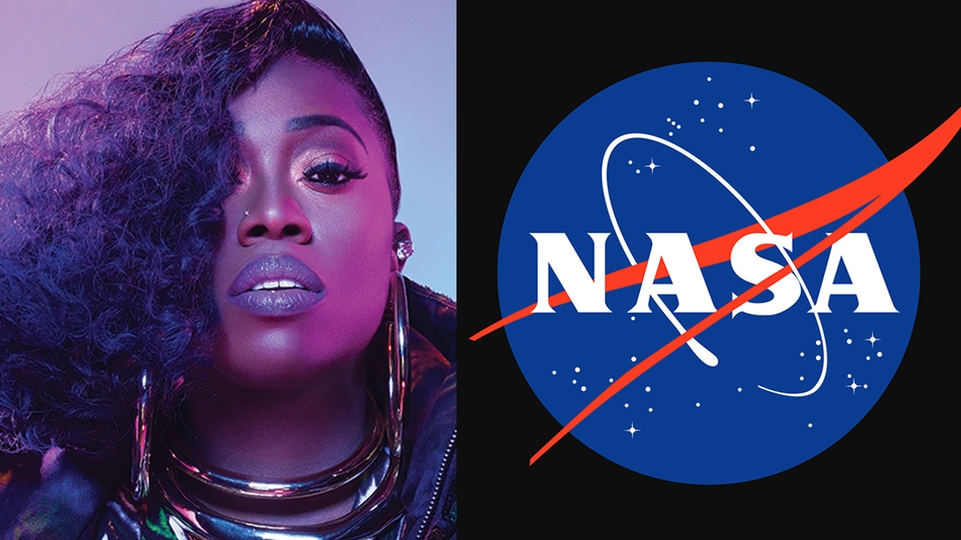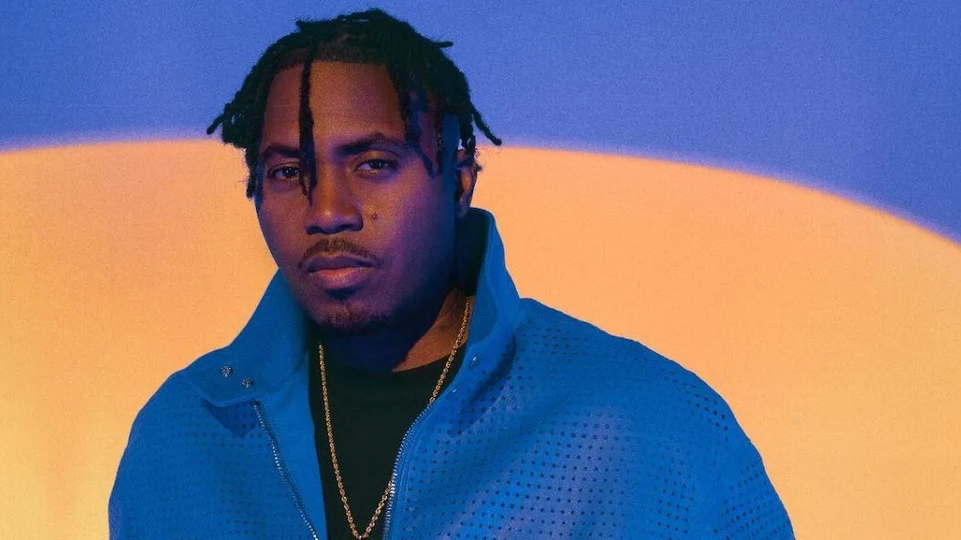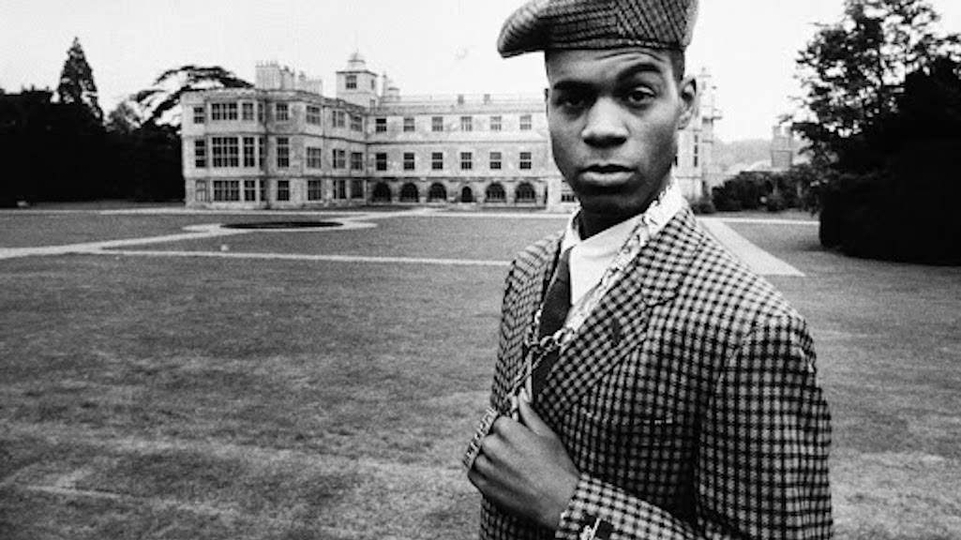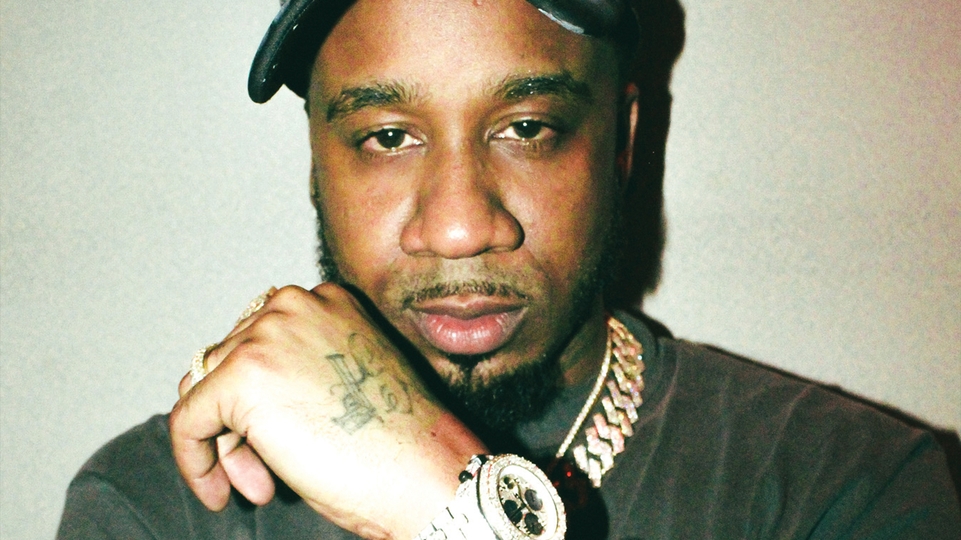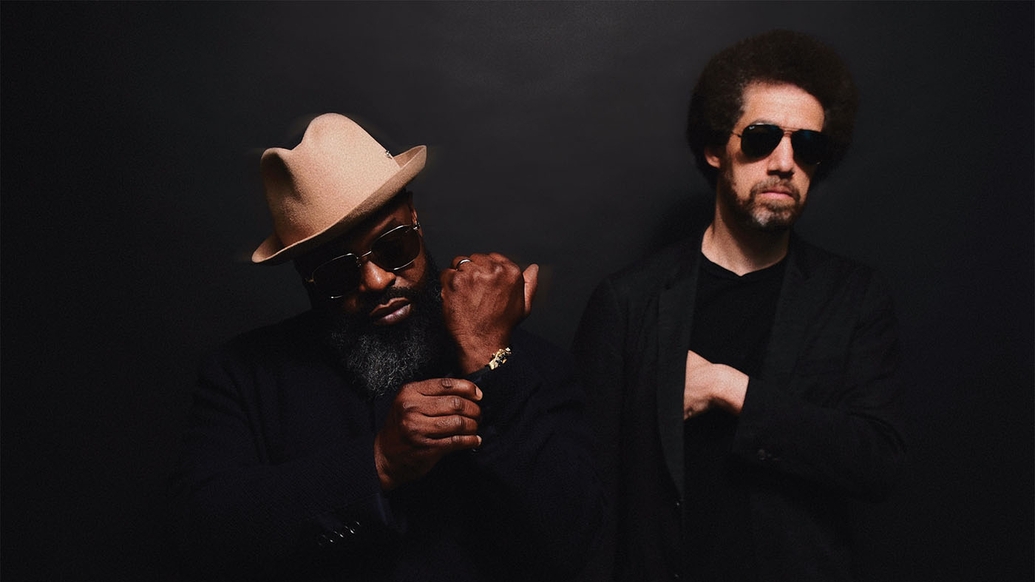
Danger Mouse & Black Thought: cracking the code
Although it features guests like A$AP Rocky, Run The Jewels and Raekwon, the best moments on Danger Mouse and The Roots legend Black Thought's new LP are in its filmic rhymes, woozy psychedelic loops, soul snippets and jazz and blues rhythms. Here, Ben Murphy speaks to them about their long-awaited collaboration
Hip-hop is ingrained in the work of American musician and producer Danger Mouse. Though he’s made records with Beck, Karen O, Gorillaz, Michael Kiwanuka, Adele and U2, whatever he does, there’s a beat-making sensibility buried deep in the music. “It’s a style I’ve always loved, it’s part of my foundation — I never really all the way leave it if I do something else,” he says. “Hip-hop is always there.”
A new collaborative record, ‘Cheat Codes’, finds Danger Mouse (real name: Brian Burton) teaming up with Black Thought (aka Tariq Trotter) — founding member of Philadelphia hip-hop outfit The Roots, solo artist and universally acclaimed rapper. Over the producer’s mesh of forgotten soul snippets, freaky psychedelic loops, dusted jazz and bluesy rhythms, the MC embroiders vivid poetic imagery, clever punchlines and slick metaphors. It’s a complementary mix that feels like a high point in both artists’ discographies — and is the first time Danger Mouse has made a long-form rap record since 2005’s ‘The Mouse And The Mask’ with the much-missed MF Doom.
“I feel like whatever Danger Mouse produces, it by default has a hip-hop aesthetic,” says Black Thought, talking to DJ Mag via Zoom while en route to Connecticut. “He’s a hip-hop producer, but he doesn’t create in a vacuum. I feel like that’s a sign of taste.”
Their collaborative project was originally mooted way back in 2006 under the banner Dangerous Thoughts, but the artists weren’t able to commit to recording time due to various other ventures. They finally reconvened in 2018, and ‘Cheat Codes’ is the long-awaited result. “It really was about wanting to work with Tariq in a bigger way,” says Danger Mouse from his home in New York. “I wanted to do a record that sounded like this, and he’s the only person that could make a record that sounds like this. The tempos, the rhythms fit really well with him.”
“There was a mutual respect for one another’s creativity,” adds Black Thought. “I was a fan of his production, and I was his favourite MC. Brian is a brilliant producer, so it went both ways. Our collaboration came together in an organic way — that’s part of what took some time, just getting to know one another while we were super busy with a thousand other projects.”
Though studded with impressive guest stars, including rappers Raekwon, A$AP Rocky, Run The Jewels, Joey Bada$$ and Conway The Machine, and singers Michael Kiwanuka, Kid Sister and Dylan Cartlidge, ‘Cheat Codes’ is often most impressive when it’s just Black Thought’s voice at the helm. ‘Close To Famous’ is a brief and blistering takedown of wack MCs over an addictive groove of eerie organ, spry bass, tough drums and vocal samples, while ‘Sometimes’ has a gorgeous Southern soul loop, over which he weaves lyrics loaded with detail, pop cultural references and meaning.
Meanwhile, first single ‘No Gold Teeth’ feels like a classic in the making, with its swinging library funk groove, blues licks, cymbal hissing beat and Black Thought’s fluid flows. “When I first heard that beat, it really resonated with me,” enthuses Black Thought. “It’s nostalgic in a way — it immediately put me in mind of a lot of the production that inspired me when I was a young person. Obviously it’s an Afro-bluesy sample, but it’s used in a way that very much made me think of Prince Paul, Native Tongues, Beatnuts, stuff of that era. My approach, the cadence that I use and the way that I write to it, was a throwback, but in a good way.”
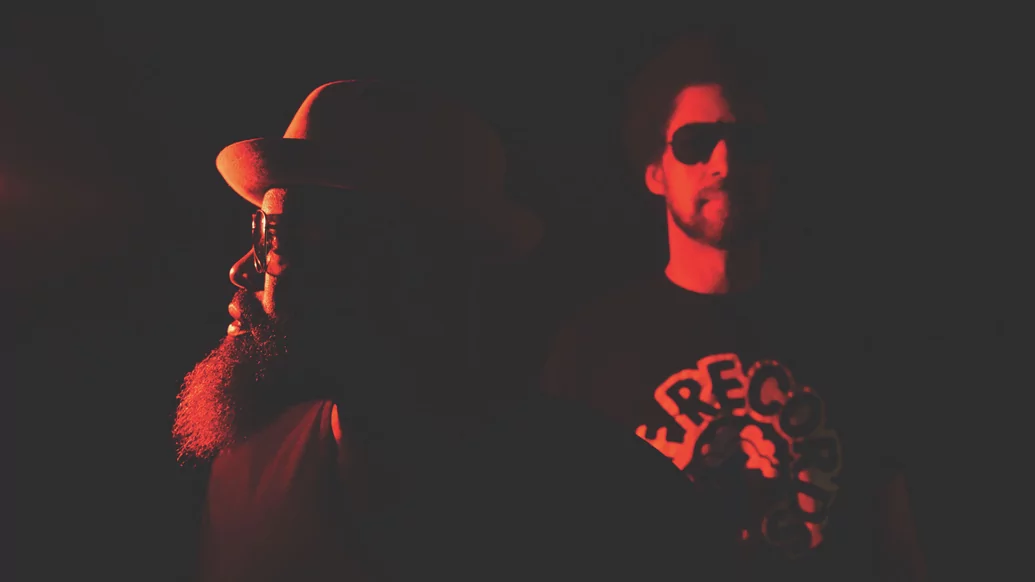
“Brian’s production is all based on something that already feels a certain way — sort of familiar — though it might be sampling one of those rare gems. So it was easy for me to be more introspective and transparently vulnerable on this record, and that’s what made it sound different from some of my other stuff” – Black Thought
On tracks like ‘Identical Deaths’, the MC leans into his most filmic storytelling, painting evocative vignettes over the jazzy, wistful soundtrack beat. “The original idea sounded so cinematic and visual,” he says, “it was the sort of thing where I didn’t want to mess it up, or limit one’s imagination, so I felt like my storytelling had to be as imaginative as the track was.”
‘Cheat Codes’ itself is the album’s most hard-hitting track, addressing the racism and adversity experienced in Philadelphia’s Black community. “I don’t know that there’s a huge meaning behind it, aside from it being a cautionary tale,” Black Thought says. “It’s a warning of sorts. I speak to what’s going on in Philadelphia, in the community that I come from, but also on a global scale. It’s commentary. The cheat code is figuring out how to manoeuvre, within all the insanity that is the world today.” The album, and the collaborators’ way of working together, found Black Thought writing his rhymes in a different style — and encouraged another, more introspective side to come through.
“Brian’s production is all based on something that already feels a certain way — sort of familiar — though it might be sampling one of those rare gems. So it was easy for me to be more introspective and transparently vulnerable on this record, and that’s what made it sound different from some of my other stuff.”
Originally from White Plains, New York, Danger Mouse started out making music while studying at university in Georgia. Under the Pelican City moniker, he made a few albums of trip-hop, but when he moved to the UK and lived in New Cross, London for a few years, he sent a demo to Warp offshoot Lex Records, who signed him.
His first collaborative album found him hooking up with cult favourite Brooklyn rapper Jemini, and 2003’s ‘Ghetto Pop Life’ LP introduced the world to his sample-driven and characterful rap production style. It was another project, though, which had the unintentional effect of catapulting him to stardom. In 2004, he released a limited quantity of ‘The Grey Album’, an art project that imaginatively cut up and blended samples from The Beatles’ 1968 self-titled LP (generally known as ‘The White Album’) and vocals from Jay-Z’s ‘The Black Album’. Working spectacularly well, it was a synergy no one expected, and it chimed with the early 2000s trend for outlandish mashups, getting wider dissemination online and picking up rave reviews. But it also raised the ire of The Beatles’ record company EMI, who ordered DM and stores to cease selling the record.
Undeterred and with his star in the ascendent, Danger Mouse went on to work with Gorillaz on their second album ‘Demon Days’, former Organised Konfusion MC Prince Po, and with MF Doom on 2005’s classic album as Dangerdoom, ‘The Mouse And The Mask’. The latter record was a masterpiece of creative crate-digging, and bears a resemblance to ‘Cheat Codes’ in its atmospheric sampling and leftfield approach to hip-hop. Though pop success beckoned with his Gnarls Barkley project — ‘Crazy’ was a No.1 record in the UK and throughout Europe, and a No.2 record in the US — his production remained imaginative, evocative and always a little weird.
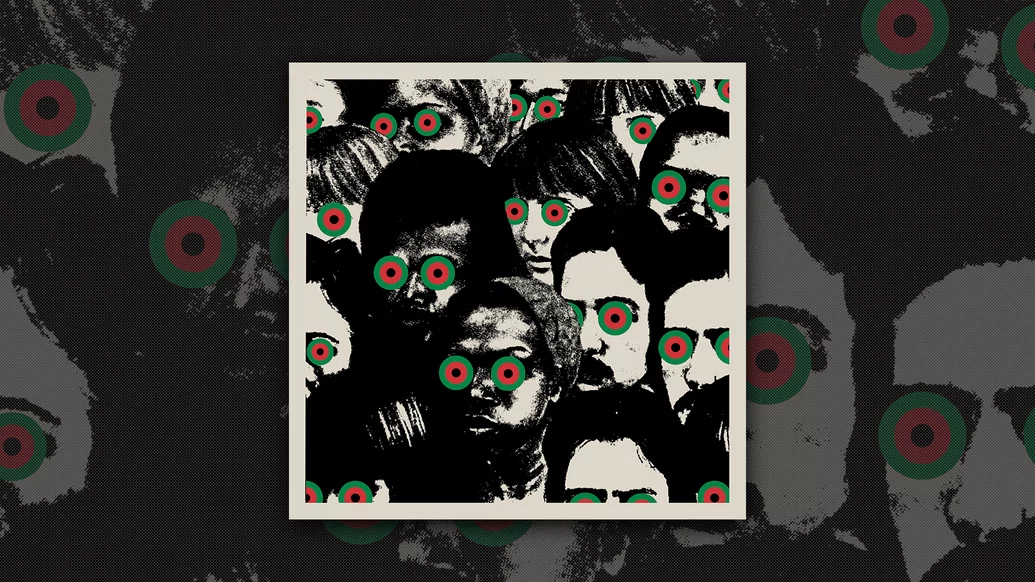

Today, when most hip-hop production worldwide follows the Southern US trap template — characterised by its laconic pace, synth melodies and drum machine beats — Danger Mouse’s beats stand out a mile. Though constructed from sample scraps and fragments of obscure records, they feel different: looser, more organic, widescreen. They sound like mysterious, 1970s private press relics, but recorded anew, like he’s painstakingly replayed parts of these forgotten gems and looped them into auditory patchworks. Small film snippets, bits of found sound and multilayered samples add to the psychedelic atmosphere, and there’s a richness that calls to mind the sumptuous and expensive studio recordings of the ‘70s, something which can be detected in his productions for indie rock and pop artists, too. Like only a few other modern-day rap production auteurs — say, Madlib or The Alchemist — you can tell a Danger Mouse beat when you hear it. But where does he find his samples, and what does he look for?
“I just grab stuff that I like,” Danger Mouse shrugs. “Sometimes it’s not stuff that is able to be rapped on, sometimes the tempo is a little different, it’s too slow or too fast. I look for something that makes me feel a certain way. I like melancholy stuff most of the time. Also, I try to find stuff that doesn’t have a strong context in the past, with things that people already know. It’s generally trying to find stuff that has not been heard before, or there’s only one part of the song that I was into. I’m looking for something that I think I’m hearing differently, that’s usually the starting point.”
A classic case of this is ‘Strangers’ from the new LP, an oddball yet highly addictive rhythm that collapses into a weird almost-chorus of film samples and vocal chants. Extracting great guest verses from A$AP Rocky and Run The Jewels, it’s the kind of beat only DM would dare dream up. “I really like that beat, it’s kinda crazy,” he says. “It’s not an easy thing to rap over, but everyone took a couple of attempts at it and then eventually we got it. It’s just a very chaotic-sounding thing.”
Adapting to Danger Mouse’s production quirks, for any collaborator, is a must, reckons Black Thought. “I think the capacity in which we work challenges whoever else collaborates with us to rise to that bar,” he says. “I just mean in regards to timelessness. We’ve both made a conscious effort not to date ourselves by being trendy, and to create something that you don’t have to put out in a hurry, but also once it’s out, it can stand the sonic test of time. That’s where Brian and I hold the bar. I think folks know that, and there’s no way to work with us other than being really open to collaborating in that way. I can’t imagine that anyone’s first submission is what made it to this record!”
Philadelphia’s Black Thought met musician Questlove in 1987, later forming a band with him, the late Malik B, and double bassist Leonard Hubbard. The Roots released their first album, ‘Organix’, in 1993, standing out through their use of live instruments and jazz-inflected rhythms. Tracks like ’94’s ‘Distortion To Static’, from the album ‘Do You Want More?!!!??!’ opened the ears of hip-hop heads around the world, with its double bass, aquatic Rhodes keys and Black Thought and Malik B’s captivating delivery, while records like the expansive album ‘Illadelph Halflife’ brought the band to both a core rap audience and alternative rock fans. ‘You Got Me’, from 1999’s Platinum-selling ‘Things Fall Apart’, featured Erykah Badu and Eve, and had a drum & bass crescendo, while their 2003 single with Cody ChestnuTT, ‘The Seed (2.0)’, was an ingenious meld of rap, funk and Rolling Stones-esque rock & roll.
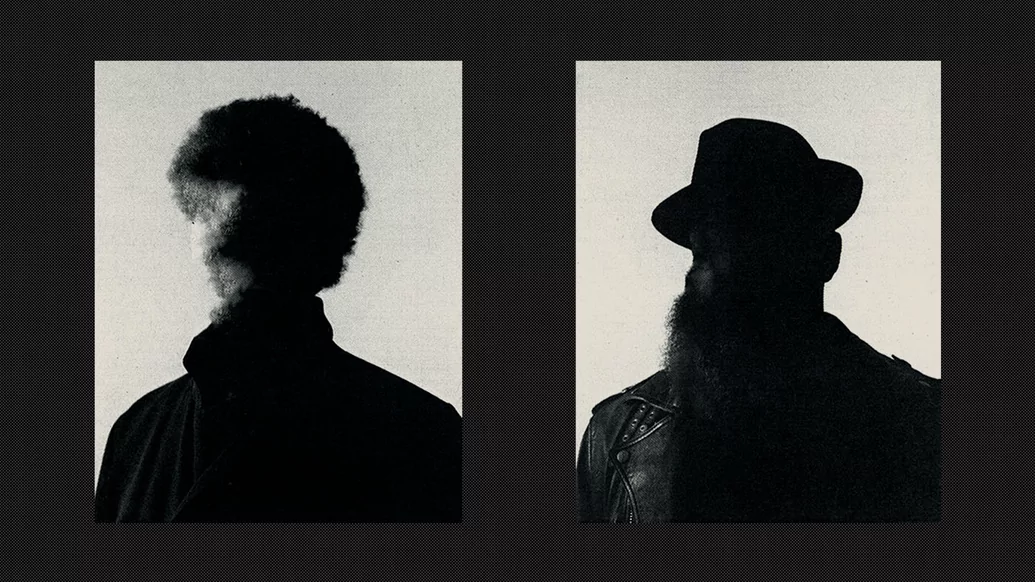
“I always prefer to work with one person... Over time, you get better at understanding and communicating with each other, the music can just get better, and the more critical you can be with each other” - Danger Mouse
The Roots went on to release many more acclaimed albums, and still feature as the house band on The Tonight Show Starring Jimmy Fallon; through it all, Black Thought’s deft lyricism and flow have been the star features, something he’s pushed to the forefront in the last few years with the ‘Streams Of Thought’ trilogy of solo albums. Collaborating with single producers on the first two records — namely, 9th Wonder and Salaam Remi — Black Thought would approach each project separately, adapting his writing to suit the beats. For ‘Cheat Codes’, he worked in a similar way.
“I don’t have a particular process that always works for me,” he says, “but the way in which I collaborate with an individual is always unique in how we work together. The way it worked with Brian and myself was pretty simple, we didn’t have an engineer that often for the project. I would show up at his place, and he would figure out how to record what we wanted to record. Once we’d settled on what music we were gonna work on that day, I would just write to it.”
‘Cheat Codes’, like many of Danger Mouse’s collaborations, finds him sparring primarily with one other artist. Like classic albums by Jeru the Damaja and DJ Premier, or the RZA and Raekwon, there’s a cohesion and focus to the record as a result. As Danger Mouse says, it’s his favourite way of working.
“I always prefer to work with one person, whether it’s a singer or a vocalist, someone who writes lyrics and performs,” he says. “Over time, you get better at understanding and communicating with each other, the music can just get better, and the more critical you can be with each other. That takes time, and it’s harder with more and more people. It can be more difficult and maybe not as enjoyable sometimes. Bands are hard. If you’re in the band and you add one more person that comes in, that’s not usually very easy either. In a tradition of beats and a rapper, I didn’t really think about that so much, but I just enjoy working with Tariq, so that was an easy one on my side. Each beat is different, and each thing he does is different as well, so there was never an issue.”
Beyond the release of ‘Cheat Codes’, and its well-received lead singles ‘No Gold Teeth’ and ‘Because’, the artists each have several projects in the pipeline. Black Thought is expanding the Two One Five Entertainment production company he runs with Questlove — which first came to prominence with the excellent music film Summer Of Soul — with new documentaries, a feature film and several series upcoming. His off-Broadway play Black No More, based on the George S. Schuyler novel, is coming to Broadway. Danger Mouse, meanwhile, is finishing up another record with his indie rock band Broken Bells. There’s other plans, but none he’s prepared to talk about now. As to the prospect of more music from them, he reckons it’s only a matter of time.
“We’re not announcing another album, but we haven’t technically stopped working together, there was just time in between. There’s no reason to stop, as far as I’m concerned.”

